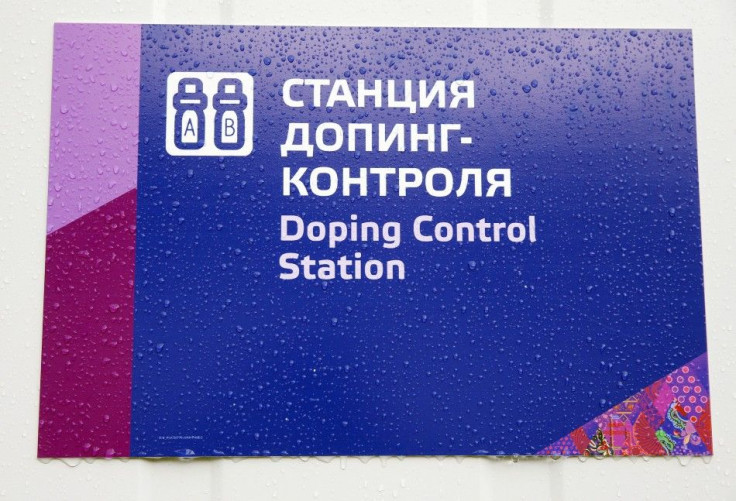Sochi 2014: Shocking Doping Cases at the 22nd Winter Olympic Games

The accountability of the International Olympic Committee in its fight against doping is recognised by strict doping control guidelines and a few days before the conclusion of the 22nd Winter Olympics, several doping cases have been reported. The host nation, Russia, has harboured success in the 22nd Winter Olympic Games, but its doping cases has made the big sporting event slightly darker.
William Frullani
Frullani is a 34-year-old Italian decathlete and bobsleigher. On Feb 18, he was tested positive for dymethylpentylamine or also known as methylhexanamine, a pharmaceutical drug inhaled as a nasal decongestant. However, its original manufacture has pulled it out from the market in 1983, but in 2006, the drug has been sold under different names as an energy-boosting dietary supplement. Numerous sports authorities have banned the substance due to its performance-enhancing abilities and suspended athletes who have taken it. Frullani was sent home and he was replaced by Samuel Romanini in the Italian four-man bobsleigh team.
Marina Lisogor
Lisogor is a 30-year-old Ukranian cross country skier. On Feb. 18, she was tested positive for trimetazidine after she has participated in the women's team sprint. According to Lisogor, she has been taking an anti-fatigue medication containing the alleged banned substance as a post-medication after undergoing a thyroid operation in 2004. She said that she was unaware that the drug has been added to the list of banned substances.
Vitalijs Pavlovs
Pavlovs is a 24-year-old professional hockey player from Latvia. On Feb. 19, Pavlovs was tested positive for methylhexanamine. As a result, he was disqualified to play in Latvia's quarterfinals match against Canada. The Olympic organisation has immediately requested to revoke his accreditation card as well as his Olympic identity.
Evi Sachenbacher-Stehle
Stehle is a 33-year-old German cross-country skier and biathlete. On Feb 21, she was also tested positive for methylhexanamine. Stehle have already won two gold medals at Sochi 2014 before the doping results were revealed. As a consequence, Stehle was stripped of the medals she had won in the previous Olympics and her results were declared null and void.
Stehle was shocked how the doping test came about, as reported by The Tribune. "I am living through the worst nightmare that you can imagine," she said. "I can only assure you that I have never knowingly taken a banned substance and will do everything to clear this up so there are no questions," she added.
Stehle's positive doping test now cast a cloud over the entire German delegation.
Johannes Duerr
Duerr is a 26-year-old Austrian skier. Duerr's doping case is reportedly the most serious one, according to Los Angeles Times. It was announced on Sunday that Duerr tested positive for the use of Erythropoietin (EPO), which is used as a blood doping agent especially in sports such as boxing, cross-country skiing, biathlon, triathlon, snowshoeing, rowing, cycling, horseracing, race walking, and distance running.
Duerr participated in the men's skiathlon on Feb. 9 where he finished eight. He flew back to Austria to continue training and he was tested a week after. Duerr came back to Sochi to compete in the 50-kilometre final cross-country event but he was eventually ejected due to the positive use of said banned substance.
"It is a black day for us," said Austrian Olympic Committee president Karl Stoss.
Nicklas Backstrom
Backstrom is 26-year-old Swedish professional ice hockey athlete. He was tested positive for a substance that was found in an allergy medication. As a result, he was pulled out of Sweden's final ice hockey game against Canada. The Canadians beat the Swedish 3-0.
Backstrom told BBC that he has nothing to hide. "I have allergy problems, and I have been taking Zyrtec-D for many years, and it was a little shocking to me to be honest with you," he said.
"I feel like I haven't done anything differently now than the last seven years."
Doping or the use of performance-enhancing drugs at the Olympics started way back to the Ancient Olympics. Ancient Olympians would eat a meal that is allegedly prepared in an exceptional way so that they would gain athletic edge over the others.
Nowadays, athletes may have their own reasons of taking performance-enhancing drugs. They may take those banned substances to excel and become more competitive as well as improve their performance altogether. Should athletes caught using banned substances and other performance-enhancing drugs be castigated? What do you think?





















